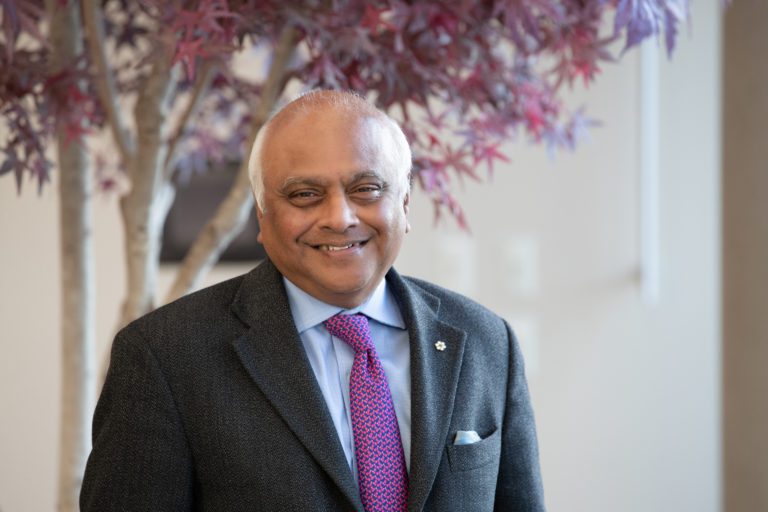
Maura Marcucci
PHRI Scientist Maura Marcucci has received a multi-year grant from the Canadian Institutes of Health Research (CIHR) for the NeuroVISION-2 Biobank Initiative. This Initiative, an expansion of the NeuroVISION-2 study, explores the mechanisms and prediction of perioperative brain injury and its long-term impact.
NeuroVISION-2, a large international cohort study involving 1,300 patients, focuses on understanding mechanisms and risk factors of perioperative covert stroke and neurocognitive disorders in patients aged 65 or older undergoing noncardiac surgery.
“Perioperative neurocognitive disorders, such as delirium and cognitive decline, significantly impact post-surgery well-being, causing substantial morbidity and functional impairment,” notes Marcucci, principal investigator (PI) of the study.
The study aims to identify biomarkers for early detection and prediction of perioperative neurocognitive disorders. Marcucci emphasizes, “Biomarkers can help identify patients who are having an apparently silent but clinically important event such as an acute brain infarction without the need to perform a brain MRI on everyone.”
She adds, “Moreover, the NeuroVISION-2 Biobank Initiative will help identify patients susceptible to long-term cognitive changes after acute perioperative events like covert stroke and delirium and suggest therapeutic pathways.”
On January 29th, the Government of Canada announced the results of the “CIHR Operating Grant: Mechanisms in Brain Aging and Dementia,” providing CAD 749,558 over three years to the NeuroVISION-2 Biobank Initiative team. This initiative is among the 13 selected research projects granted funding to explore age-related cognitive impairment. The study team includes PHRI Senior Scientists PJ Devereaux and Guillaume Pare, and Investigator Michael Chong, all serving as co-PIs.
As part of the NeuroVISION-2 Biobank Initiative, researchers will collect blood samples before and after surgery. This allows for the evaluation of potential biomarkers, including inflammatory proteins, mitochondrial DNA, and DNA methylation, examining their connection with the risk of developing neurocognitive complications.
The Clinical Research Laboratory and Biobank – Genetic and Molecular Epidemiology Laboratory (CRLB-GMEL) plays a pivotal role in this study. All samples, including those from international sites, will be sent to CRLB-GMEL for storage and analysis.
Highlighting the significance of the Biobank Initiative, Marcucci says, “The biobank will extend the lifespan of the NeuroVISION-2 study, enabling future analysis based on emerging knowledge. Our findings can contribute to broader research on cognitive diseases beyond the perioperative setting.”
The study is expected to involve over 20 sites worldwide. Marcucci expresses eagerness, stating, “We are ready to initiate patient recruitment in Canada and collaborate with international sites for the global launch. This funding is key in making it happen!”
Another PHRI project secured funding from CIHR, receiving a grant of CAD 750,000 for the “Canadian Alliance for Healthy Hearts and Minds (CAHHM): A Biomarker Study of Cognitive Decline,” led by scientist Marie Pigeyre.



